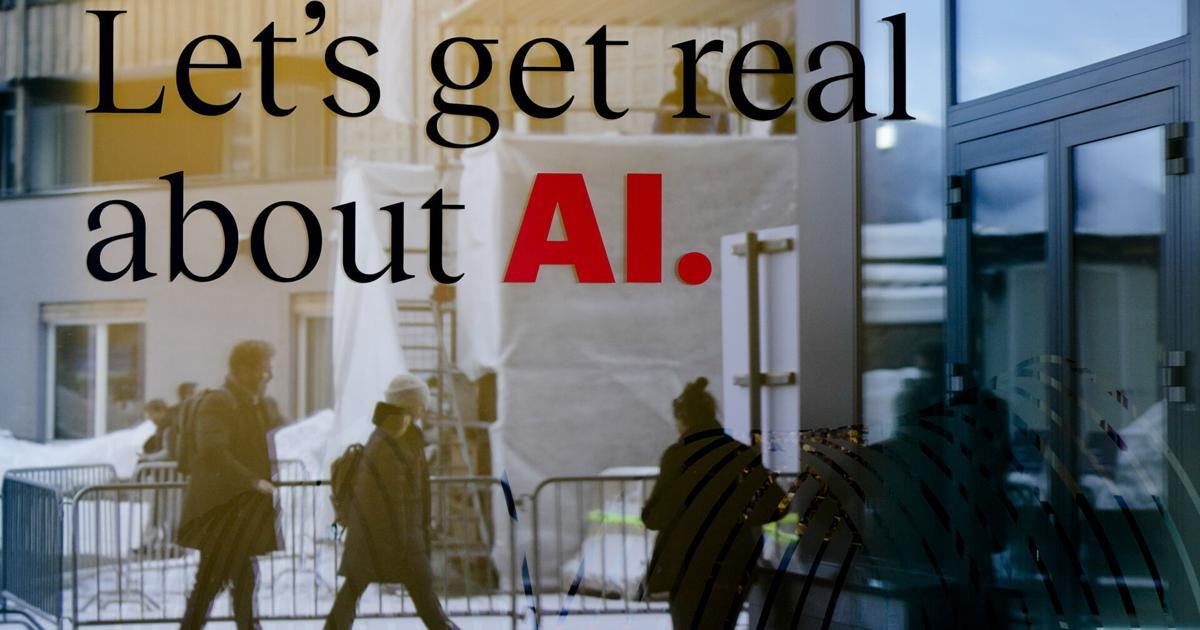Education
Equity report calls for overhaul of Australia’s higher education system

Launched as part of ACSES’ Australian Student Equity Symposium in Sydney, Equity Insights 2025: Policy, Power, and Practice for a Fairer Australian Tertiary Education System shares the views of vice-chancellors, policymakers, practitioners, and students, who examine why, despite substantial investment and effort, equity progress in Australian higher education remains modest.
Shamit Saggar, executive director of ACSES, said the purpose of the report is to shed light on the challenge of student equity, the responsibilities involved, and the progress being made.
“The report gathers 14 perspectives from key figures involved in higher education policy, university sector management, equity practice, student experience, and academic expertise. Each of these contributions reflects distinct elements of the task facing the sector,” said Saggar.
The report spans three themed sections: Rewriting the System: Policy, Structures and Reform; Power, Voice and Justice; and Making Equity Real: Practice, Place and Participation.
ACSES research and policy program director, Ian Li, said the report discusses the actions required across a broad range of areas. “It highlights both the systemic reforms required and the everyday practices that can make a real difference in the lives of students,” said Li.
[The report] highlights both the systemic reforms required and the everyday practices that can make a real difference in the lives of students
Ian Li, ASCES
The report argues that higher education is still shaped by entrenched class hierarchies, colonial legacies, and rigid divisions between vocational and university pathways, and that incremental reforms have not, and will not, deliver the impact required for the nation to meet the ambitious target of 80% tertiary attainment by 2050, with full parity for underrepresented groups.
Contributors also emphasise that cost-of-living pressures, housing stress, and mental health challenges are not peripheral concerns but central to whether students can complete their studies, and are just as important as reforming admissions or curriculum.
The longstanding divide between vocational education and universities was raised as a key issue, with calls for a harmonised system that allows students to move more easily between sectors and provides more flexible entry and exit points.
The report outlined measures to increase access for regional and remote students, including creating regional study hubs, tailored funding, and localised support outside metropolitan areas. It also called for leveraging the success of regional universities that already serve high proportions of equity students by using them as models for scaling equity.
Disability inclusion, meanwhile, must move beyond individual adjustments toward accessible curriculum and learning environments designed from the outset.
Indigenous contributors Leanne Holt and Tracy Woodroffe called for universities to move beyond transactional support and embed Indigenous leadership and cultural safety at every level of governance, teaching, and research.
Universities were also issued a warning that using AI and technology as a quick fix for equity risks widening the divide further. Instead, the report suggested equity must shape how AI is integrated through universal digital access, AI literacy, and student co-design.
The report also contained early insights from the new National Student Ombudsman, launched in February 2025, revealing strong demand for independent complaint resolution, especially on course administration, wellbeing, and financial issues. Sarah Bendall, who leads the office as First Assistant Ombudsman, argues this is proof that accountability must become a sector-wide priority.
While each section of the report contains unique perspectives and experiences, the overall message of Equity Insights 2025 is not simply to do more, it is to do differently, and it calls for bold leadership across the entire sector.
Education
David Bong, CEO & co-founder of Avant Assessment

Introduce yourself in three words or phrases.
Innovative, empathetic, determined
What do you like most about your job?
Every day brings a new experience with a language or language community in the US or somewhere else in the world for the 150 languages we assess. It never gets old exploring creative ways to expand opportunities for learners, teachers, and test-takers through innovative assessment, learning technologies, and pedagogies.
Best work trip/Worst work trip?
Best: This June, I attended EdTech Week in London – a full week of thought-provoking sessions on how entrepreneurs are reshaping learning and teaching. Conversations with fellow innovators from all over the world, including The PIE’s own CEO Amy Baker, sparked countless ideas for growing our services. The weather was glorious, and staying on London’s vibrant East Side showed me a whole new incredibly rich and diverse face of the city.
Worst: I’ve had a few challenging trips, but I genuinely love travel. Even the tough ones offer valuable lessons.
If you could learn a language instantly, which would you pick and why?
Brazilian Portuguese – it feels like the voice is dancing with every word. It’s such a contrast to my second language, Japanese, which I deeply love. It would be wonderful to have the ability to speak two such different and beautiful languages. Brazil’s fast-growing economy and strong demand for both English and Spanish learning and assessment make Portuguese not only beautiful, but strategically valuable for business.
What makes you get up in the morning?
Our remarkable global team. They amaze and inspire me every day.
Champion/cheerleader which we should all follow and why?
In a world without many inspiring political leaders, I admire the courage, determination, and leadership of Volodymyr Zelensky. As far as a leader in reporting on technology and how it impacts global society, business, and education: Azeem Azhar consistently provides the most insightful analysis I have found.
Worst conference food/beverage experience
I won’t comment on the worst, but if I could humbly say, the best was the spread of Polish food our company put on for our party at the Polish Museum of America in Chicago during the US national language conference in 2023.
Book or podcast recommendation for others in the sector?
AI is the biggest topic out there everywhere, including EdTech. Although it was written before ChatGPT exploded on the scene, I found this book incredibly helpful in understanding both the fundamental principles of AI, and the history of how it has evolved since it was first discussed in 1954 at Dartmouth College. ‘Artificial Intelligence: A Guide for Thinking Humans’ by Melanie Mitchell. As a history major in college learning the context of where it started to where it is today gave me a good feel for the trajectory of this powerful technology.
A classic book on EdTech I would recommend is Clayton Christensen’s 2008 book ‘Disrupting Class: How Disruptive Innovation Will Change the Way the World Learns’. A personal lesson for me from the book: even proven technologies take years to gain traction in education, and that the change will only come from around the margins. As the developer of ELPA in 2004, the first online test of English for English Language Learners for the Oregon Department of Education, we assumed that departments across the US would quickly adopt online testing given the many advantages that it provided. Instead, it took the Covid crisis to finally push online testing to be used throughout the US education system.
Describe a project or initiative you’re currently working on that excites you.
In 2022 we created Mira, our AI-powered language learning and assessment platform. This summer we launched Mira Stride, a formative assessment that uses AI to instantly analyae English Language learners’ use of language, provide individualised reports on the strengths and challenges for the learners, and identify concrete measures that teachers can use to address each learner’s challenges. I am constantly amazed by the power of properly harnessed AI technologies to personalise and accelerate language learning.
Education
AI tutor, for schools and education, without human intelligence targets?

The [September 1, 2025] Labor Day was a question of what should become of education, if AI can operate intelligently, to do aspects of productive work? What is the missing piece to learn for the future, in the era of AI? How much potential do AI tutors hold, specifically, against what excellent human instructors already provide?
The biggest problem in education is the unknown — how human intelligence works. The promise of revolutionizing learning is less about another trend than what is understood as human intelligence and how it should guide learning.
Learning has subsumed a ton of [guess] interventions over decades, with explorations for improved outcomes. Yet, the quality of knowledge as a transcendent property has eluded many. The barriers to the transformational capacity of education are closely aligned with human intelligence, much more than facilities or instructors’ questions.
It is not even progress, at this point, to assume that artificial intelligence can augment learning without knowing how human intelligence works. The human intelligence that AI would train is the same human intelligence that would compete with AI for work? What should humans be learning for now [that the subtraction of whatever AI can do or answer, from what humans can do, in several important tasks, leaves the thing a lot less valuable — as an impact on labor]?
Learning Questions
How does learning adapt to significant problem-solving? What are the techniques to persist in learning complex stuff that may hold important solutions? How can learning be designed to match patterns to answer the unsolved? If an individual is learning what AI already knows, how should that learning be structured to out-compete AI?
Will it ever be possible to personalize learning for everyone?
AI Tutor
For now, AI tutors, AI schools, AI education, or AI learning are not offering anything beyond what is still possible with human instructors. What education is seeking in this era, that AI tutors can optimize for, is pathway displays for memory and intelligence in the brain, to track, almost in parallel, the processes of understanding, recall, creativity, innovation, and expertise, to increase the chances for those.
Simply, what an AI tutor should solve is what a human instructor cannot yet solve: which is the likelihood to target learning, for navigation in the brain, towards advancing humanity. Already, all AI chatbots can answer questions, with several examples — plus simplicity. Still, it is not like grasping, for all, is now straightforward. This is saying that the problem that exists continues to linger, even if mitigated by consumer AI.
Human Intelligence
Any AI tutor program that can develop or show a model of how human intelligence works, to prospect learning [for relays] in the brain would transform education — this century. Simply, show a concept of how human intelligence works, and use that to tailor lessons for higher-order results. Already, human instructors can provide regular training, but what would make a difference, for AI, is to shape human intelligence to withstand the uncertainties that AI holds for the future.
AI tutor in schools can explore theoretical neuroscience, developing models for many aspects of learning. Memory, conceptually, is obtained in destinations in the brain, but intelligence [which is the use of memory] are navigations [of information] summaries across memory areas. Rote memorization, for example, is the making of new paths between memory locations, so that the paths are available for direct relays subsequently, resulting in recall. Problem-solving could be the overlay of two memory locations, so that their differences, rather than contrast, are made similar, opening up possibilities for answers.
The opportunity for AI tutor in education is not to do what human instructors can do or to assume it will simply make things easier when the [human intelligence] question remains unanswered, and AI would be able to do aspects of several jobs, if that is the learning objective. How does human intelligence work is how to restart the education project — now that AI is ascendant.
ChatGPT Edu
There is a recent [August 28, 2025] announcement by Indiana University, IU strengthens national leadership in AI innovation with ChatGPT Edu rollout, stating that, “Indiana University is expanding its robust artificial intelligence offerings with OpenAI by providing access to ChatGPT Edu, a version built specifically for higher education. ChatGPT Edu offers the world’s most advanced AI tools for learning, teaching, and research.”
“In providing access to all 120,000 students, faculty, and staff, IU will be the second-largest ChatGPT Edu rollout of all time for OpenAI, demonstrating IU’s national leadership in higher education innovation and underscoring its commitment to responsibly integrating AI across its campuses while preparing a future-ready workforce.”
“IU faculty and staff can request institutional access beginning Sept. 2, with student access launching Jan. 1 [2026]. The deployment of ChatGPT Edu is one of many ways IU is integrating AI across the academic experience.”
“In August, IU launched a new, free GenAI 101 course that serves as a foundational program introducing the IU community to generative AI concepts, applications, and responsible-use practices.”
“Together, GenAI 101, ChatGPT Edu, and IU’s expanding suite of AI services ensure that faculty, staff, and students are not only equipped with powerful AI tools but also prepared to use them effectively and ethically.”
This article was written for WHN by David Stephen, who currently does research in conceptual brain science with a focus on the electrical and chemical signals for how they mechanize the human mind, with implications for mental health, disorders, neurotechnology, consciousness, learning, artificial intelligence, and nurture. He was a visiting scholar in medical entomology at the University of Illinois at Urbana-Champaign, IL. He did computer vision research at Rovira i Virgili University, Tarragona.
As with anything you read on the internet, this article should not be construed as medical advice; please talk to your doctor or primary care provider before changing your wellness routine. WHN neither agrees nor disagrees with any of the materials posted. This article is not intended to provide a medical diagnosis, recommendation, treatment, or endorsement.
Opinion Disclaimer: The views and opinions expressed in this article are those of the author and do not necessarily reflect the official policy of WHN/A4M. Any content provided by guest authors is of their own opinion and is not intended to malign any religion, ethnic group, club, organization, company, individual, or anyone or anything else. These statements have not been evaluated by the Food and Drug Administration.
Education
SDOC talks AI in schools – upstatetoday.com

SDOC talks AI in schools upstatetoday.com
Source link
-

 Business2 weeks ago
Business2 weeks agoThe Guardian view on Trump and the Fed: independence is no substitute for accountability | Editorial
-
Tools & Platforms1 month ago
Building Trust in Military AI Starts with Opening the Black Box – War on the Rocks
-

 Ethics & Policy2 months ago
Ethics & Policy2 months agoSDAIA Supports Saudi Arabia’s Leadership in Shaping Global AI Ethics, Policy, and Research – وكالة الأنباء السعودية
-

 Events & Conferences4 months ago
Events & Conferences4 months agoJourney to 1000 models: Scaling Instagram’s recommendation system
-

 Jobs & Careers2 months ago
Jobs & Careers2 months agoMumbai-based Perplexity Alternative Has 60k+ Users Without Funding
-

 Podcasts & Talks2 months ago
Podcasts & Talks2 months agoHappy 4th of July! 🎆 Made with Veo 3 in Gemini
-

 Education2 months ago
Education2 months agoMacron says UK and France have duty to tackle illegal migration ‘with humanity, solidarity and firmness’ – UK politics live | Politics
-

 Education2 months ago
Education2 months agoVEX Robotics launches AI-powered classroom robotics system
-

 Funding & Business2 months ago
Funding & Business2 months agoKayak and Expedia race to build AI travel agents that turn social posts into itineraries
-

 Podcasts & Talks2 months ago
Podcasts & Talks2 months agoOpenAI 🤝 @teamganassi





















